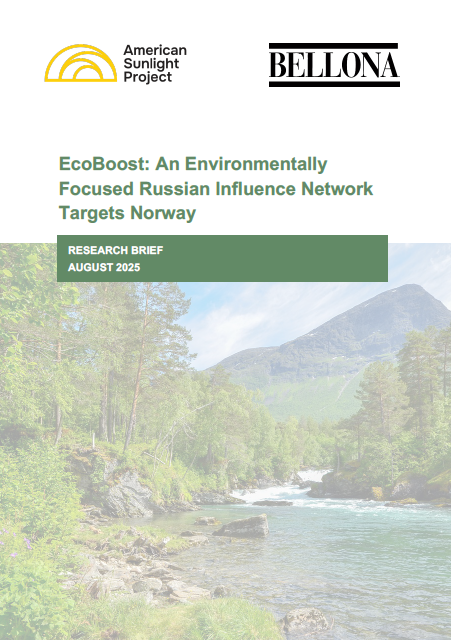
EcoBoost: An Environmentally Focused Russian Influence Network Targets Norway
The American Sunlight Project and the Bellona Foundation show in this brief how the Russian bot network EcoBoost systematically manipulates climate a...
Publication

Authors: Marika Andersen
Publisher: Bellona Europa
Publication
On 24 June 2016 the United Kingdom voted 52% to 48% in a referendum to leave the European Union. Many resources are now likely to be diverted from running the EU and progressing important policies toward instead managing and negotiating the referendum implications. The UK has strong historic electricity and gas links with Europe and is deeply entwined with EU low carbon agenda, from the Emission Trading System (ETS) to the 2030 Framework for Climate and Energy. Three big questions emerge regarding climate, energy and environment after Brexit:
This brief explores these questions and uncertainties. However, one thing remains certain: As our statement read immediately after the referendum result, Bellona has championed environmental and climate protection in Europe from outside EU membership for over 20 years and will continue to do so. While domestic implications for the UK remain unclear, NGOs’ voices in Europe will continue to be heard.